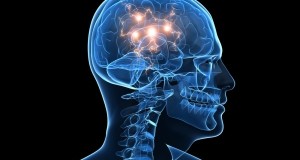What is Creatine?
Creatine is an amino acid that’s produced in the liver. It supplies our bodies with the energy it needs, particularly within muscle cells. Due to it’s effects on muscle mass, creatine supplements are commonly taken by bodybuilders and athletes. However, many individuals are now taking creatine supplements to boost brain function.
It is naturally found in the body, so it is not considered an essential nutrient. However, in terms of cognitive enhancement, many people are finding that creatine supplements are highly effective. This nootropic increases brain health and improves mental energy.
How Does Creatine Work Within the Brain?
When creatine is taken through supplements or from food sources, it is absorbed into the bloodstream. When produced by the liver and kidneys, three amino acids are involved; glycine, L-arginine, and L-methionine. Once produced, it is transported through an active transport system.
Creatine crosses the blood-brain barrier, which is designed to keep toxins out. Once inside the brain, creatine binds to phosphate. Creatine phosphate then increases energy consumption within the brain. This is what helps increase cognition function.
This occurs just like increased glucose and oxygen, providing an increased energy supply. Basically, creatine helps brain cells ‘reset’ after they have fired. This improves both their speed and efficiency, helping mental performance.
Creatine in a Stack
Due to the ATP consumption rate for many nootropics, creatine is highly beneficial within a stack. Racetams for instance can cause brain fog, which is generally associated with a poor diet and supplement consumption. Your ATP intake should keep up with your ATP consumption.
Since creatine increases ATP it is generally favoured within a stack. Not only does it block negative effects, it create nootropic effects itself. Creatine can basically fit into any stack, as it has some unique properties that other nootropics do not cover.
Benefits of Creatine
There are many benefits to creatine, as it’s naturally found in the human body. The primary benefit is an increase in energy for muscles. This boosts physical performance as ATP is sent directly to working muscles.
In terms of cognition, users experience a variety of benefits. This is especially true for vegetarians and vegans, as they tend to have lower body stores. Creatine is primarily found in meat, so the impact on these individuals tends to be greater.
- Creatine is great for one’s memory, especially short-term memory. Studies have shown that participants memory span increased when given creatine, in comparison to a placebo group. This provided information regarding working memory, as researchers learned that creatine helps with ATP re-synthesis. When this occurs, there’s an increase in short-term memory ability.
- When our brain’s are tired, it leads to poor decision-making. When you consume creatine, oxygen is enhanced. This helps reduce brain fatigue. Just as fatigue is reduced in muscles, energy synthesis within the brain reduces mental fatigue.
- Creatine has been shown to improve mood. Individuals suffering from depression took creatine, which reduced their symptoms associated with their mood.
- Elderly people have been shown to benefit from creatine, regarding spatial recall. It also improved age-related decline through supplementation. It was shown to improve GABA neurons, preventing conditions such as Alzheimer’s. Creatine supplementation in elderly helps to improve spatial recall, as well as long-term memory.
- Creatine is considered a neuroprotectant as well. Since ATP is increased, less damage occurs due to toxins. It not only protects against toxicity, but enhances metabolic processes. This means that cognitive function is working at optimal levels.
Possible Side-Effects
Creatine is considered to be safe, but should not be consumed by anyone under the age of 18. Adolescents who do take creatine supplements, tend to do so without their doctor’s advice. This can lead to over consumption. The following are possible concerns:
- It is a concern that the kidney and liver may be negatively affected when too much creatine is consumed. Since the liver and kidneys process this compound, users need to be aware of overworking them. When users take an additional 5 grams for instance, that is the approximate equivalent of 2.5 pounds of meat. Although no studies have found this relationship, anyone that suffers from kidney or liver issues should speak with their doctor.
- Pure creatine appears to be safe, but over 50% of commercial supplements contain at least one contaminant. These contaminants include heavy metals. Before you purchase your supplement, make sure you look that it is contaminant-free.
- When taken in excess, other side-effects include; potential weight gain, anxiety, fever, headaches, nausea, and rashes.
Recommended Dosage
Doses vary, as the recommended dose is based on personal preference. Users have taken anywhere from 200 mg to 25 grams daily. In terms of nootropics, the most common dosage is between 3 and 5 grams daily.
This is generally taken in powder form in the morning and afternoon. You can either take your dose once, or split into multiple doses throughout the day.
